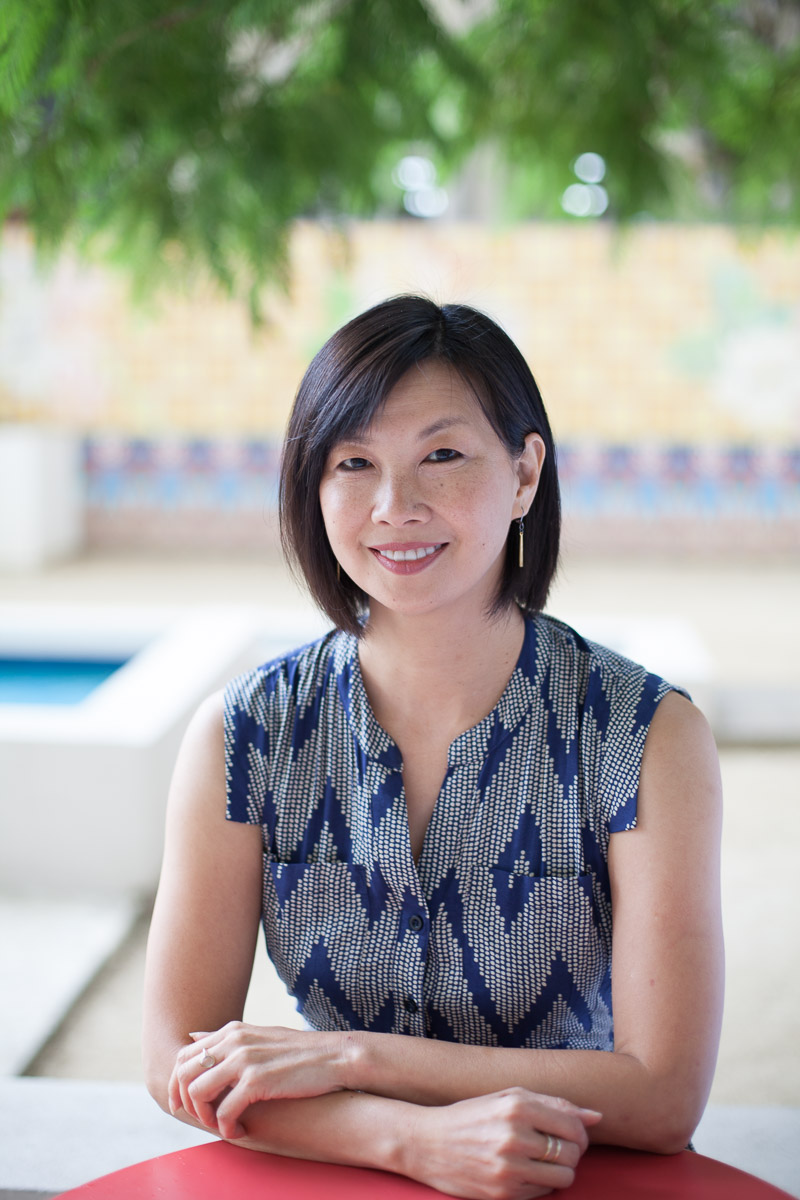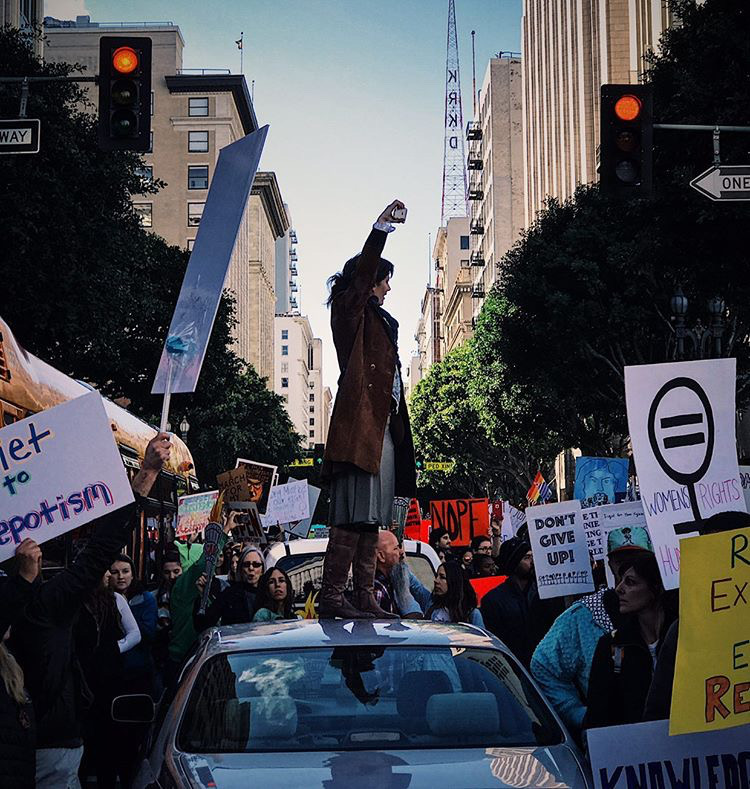I never knew I had things to say until I began working at a workplace that was mostly women. I did not set out to find a job working alongside women, it just happened by chance. In my previous jobs I was quiet in meetings while the more extroverted people held forth—and even when I did speak, I felt unheard. When I started my new job, I noticed something unusual—nearly all the managers were women in my department. What was even more surprising to me was that when I spoke, people didn’t dismiss what I had to say. So I started to say more things, and I realized, I had a lot of valuable things to say. For the first time in my professional life, I felt like my perspective was valued and taken seriously—it was incredibly freeing and empowering.
Imagine this scenario magnified across the world. What would happen if a critical mass of women came to power in politics, in executive suites, board rooms, the media, education, in neighborhoods, and all corners of life? What kind of change would happen if women rose up and took their place alongside the men—not just a token few who have to operate under the rules of the male power structure—but in numbers large enough to effect change in the very culture of institutions, countries, and the world?
Women contribute $7 trillion to the US economy in consumer and business spending, we hold 60 percent of the country’s wealth, 51 percent of stocks, and within the next decade, two-thirds of consumer wealth will belong to us. We’re killing it, from the floor of congress, to the soccer fields, to the reaches of outer space. We’re taking to the streets in historic numbers around the world to call for an end to tyranny, misogyny and gender violence, and to stand up for economic security and equal rights and pay for women.
In light of this momentum, I ask you this: does it make any sense whatsoever to just stick to the status quo and let men call all the shots? Is it acceptable that a roomful of men feel entitled to negotiate away our basic rights to access prenatal, maternity and newborn care, and breast cancer screening? For God’s sake, why? It doesn’t have to be this way. We can make real change if we start to push the walls from all sides, at the same time, together—mothers, grandmothers, aunts, daughters, sisters — all women who are able and ready to stand up. We’re fed up, and we’re ready to step fully, white pantsuit, thoub, and all, into our power. Can I get an amen?
It’s already starting to happen. Things are still far from ideal—there are still immense inequities, misogyny is widespread, and we still can’t seem to elect a female president—but more of us are starting to flex our muscle, and you know what, we like how it feels. We have an all-time high of women in the US Senate and Congress, and in state legislatures, and they are introducing legislation that benefits women. Some of us are starting to walk away from unacceptable salary offers. Some of us are calling powerful people out on their hypocrisy. Others are declaring #MeToo and holding the perpetrators accountable.
Not only must we support these brave ones, each of us must step up in our own lives, in our community, in our country, for the future of our children, and the survival of the world. On top of that, we must band together to make our voices heard. We’re getting fed up with the patriarchy, and we’re tired of being sidelined. We have the skills, experience, wisdom and the desire to lead. This is our time to take leadership in the world.
Let the history books say that in the 2020’s: women finally had enough and seized their moment, together.
It needs to be en masse

That first women’s march in 2017 was a revelation. I flew to DC on one of those planes filled with a sea of women wearing bright pink pussy hats—you can feel that something historic was happening: a dynamic energy had burst through into the world and landed firmly on the ground and onto the streets. Amid the chanting, the cheering, the elation of sisterhood and brotherhood, one quiet little moment in particular has stuck with me. As we marched past the White House, and down the wide boulevard to a busy intersection, a young man decided to block all the cars by standing in the middle of the street after the light turned green. He was showboating a bit and sneering at the drivers, thrusting his sign at them, and purposely trying to disrupt traffic and cause havoc. What happened next was priceless: all at once, the other marchers on the sidewalks—the mothers, the grandmothers, the aunts—admonished him and asked him to move out of the way and let traffic go by. We were there to make a statement, not to cause chaos and alienate people. This young man sheepishly stepped aside, chastened by the community of wise women around him, who firmly communicated that disrespectful actions were not acceptable and counterproductive.
The lesson from this is that when a tipping point of women come together — they become powerful.
I flash to the studies of matriarchal societies in the animal kingdom, like our close genetic cousins the bonobos, whose tribes are run by strong networks of cooperative females. The older female bonobos decide when the group moves and where to go. Even though they are physically weaker than the males, by using their superior social skills and banding together, they are able to check the aggressive members who overstep their limits.
I am also reminded of the Iroquois and native American women who inspired some of the early suffragists like Elizabeth Cady Stantion. Among the Iroquois it was the older women—the grandmothers—who decided whether war can be waged. After all, they were the givers of life and it was only right that they should decide whether those lives should be placed at risk. The women also had the power to ask a chief to step down.
This year is the 100th anniversary of the ratification of the 19th amendment, which gave women the right to vote. It took decades of mobilizing, protesting, and lobbying by countless women across the country, and in the end the vote to ratify the bill was deadlocked. It came down to one legislator in Tennessee to cast the deciding vote. Representative Harry T. Burn himself opposed the amendment, but his mother sent him a letter, urging him to “be a good boy” and ratify the vote. And that’s how the 19th amendment came to be.
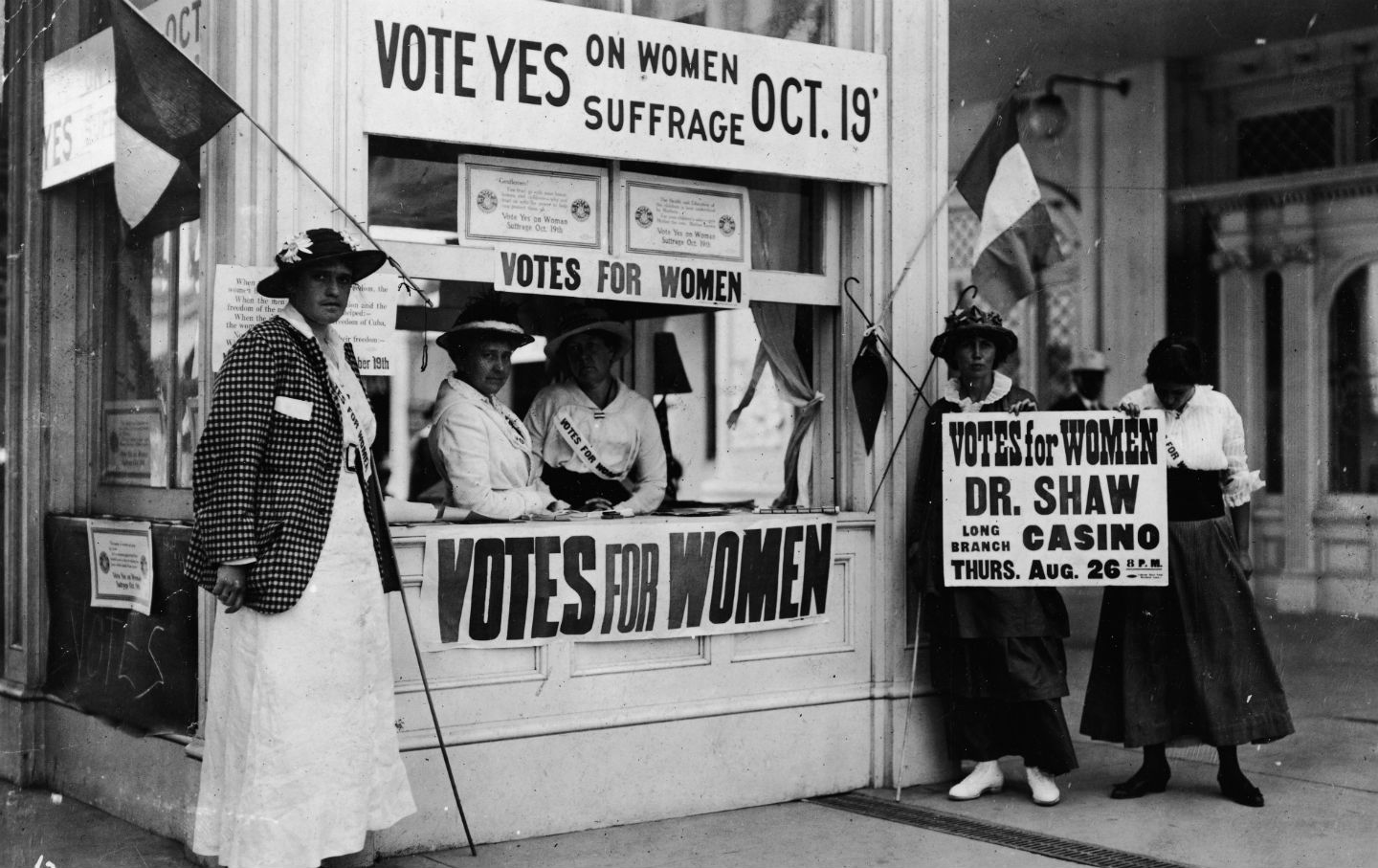
Everyone can play a role; the key is in the collective effort. Individual female leaders have risen throughout history, but they were the exceptions. They were surrounded by men and still had to play by men’s rules in order to stay in power. Quite simply, there hasn’t been a critical mass of women at the table. What if there were? How would things be different? Which ideas would rise to the surface and be put into action?
Scholar Mary Beard calls this out in her manifesto “Women & Power.” She says: “You cannot easily fit women into a structure that is already coded as male; you have to change the structure.”
We’re calling for a structure and culture shift, as the human race enters into a phase where survival can no longer depend on pillage and plunder of the world’s resources but on sustainability, conservation, innovation, cooperation, new ways of thinking, and the recognition that all people and places on the planet are interconnected.
Rapidly changing technology has displaced many people and they are desperate for dignity. Our policies of unchecked growth, profit and subjugation is leading to the destruction of our species and until mature women step up and say enough is enough, the chaos will continue unchecked.
It’s not too late. Let us get in touch with our inner Wangari Maathai, the Kenyan environmentalist who was able to reforest her country by mobilizing women to plant trees and heal the land under a dictatorial regime. Her Green Belt Movement was responsible for the planting of 30 million trees in Africa, which fought soil erosion, created firewood for fuel and new jobs for women.
“I was afraid,” she said. “But what needed to be done was so compelling, that I had to do it.”
What’s more compelling than saving the world? Stand up, girls and women of the world. Let’s come together as one formidable force for the good of man-and-womankind. Can I get an amen?
Women make good decisions
You may ask, what difference will it make if there is more gender balance at the top? A big one, actually. Studies of economies from around the world show that women tend to spend their resources differently than men. When women work, they invest 90 percent of their income back into their families—towards education, health, and nutrition—compared with 35 percent for men.
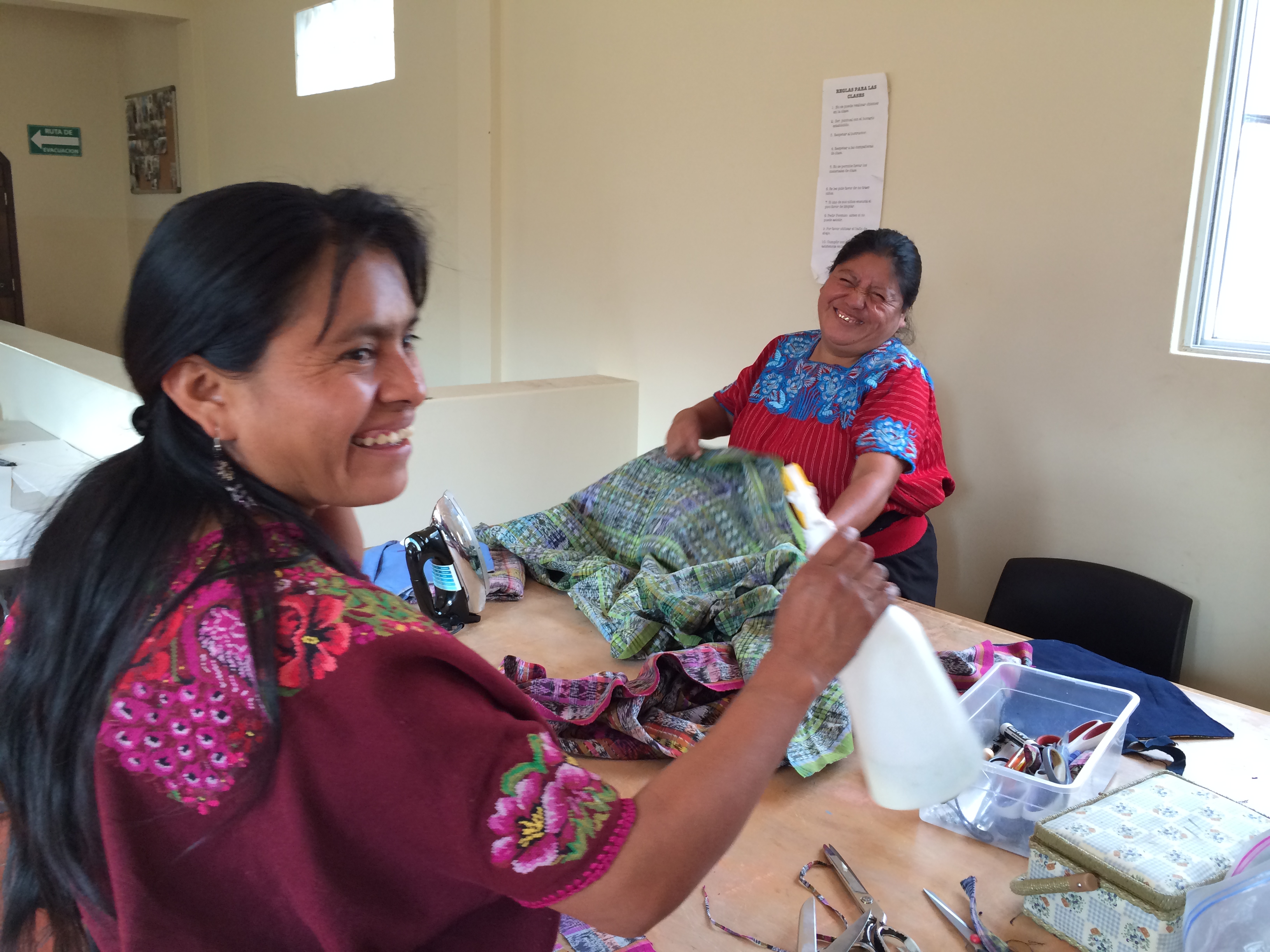
So when women are able to earn more money, the benefits are exponential. Among American Fortune 500 companies, those organizations that have more women executives at the top make more money. Worldwide, societies with more gender equality tend to grow faster and more equitably. In fact, if women were to participate more equally to men in the workplace around the world, that could drive $28 trillion in global GDP growth by 2025—that is the size of the economies of U.S. and China put together, ladies! Studies show that if you close the gender gap in education, it adds half a percent to a country’s per capita gross national product.
Mary Daly, the President of the Federal Reserve Bank of San Francisco, says a surefire way to grow the economy is to get more women into the workforce. Daly was a high school dropout who thought she was going to be a bus driver. It was a mentor, Betsy Bane, who encouraged her to get a GED, and paid for her first semester of college.
Bane told her: “Don’t give up just because people say nobody like you has ever done it.”
Don’t give up, ladies, just because we have never run the show before. Women are not biologically inferior to men in terms of intelligence, strength, drive, wisdom, perseverance, patience, and responsibility. We could, however, use a broadening of our vision.
Can we open our minds and imagine a different world order—where issues like access to childcare, family planning, reproductive rights, violence against women, quality public education and more are not just brushed aside, but instead are given proper attention at last? How would a fundamental shift in priorities change things?
Melinda Gates says: “The unprecedented energy and attention around gender equality makes this a moment when extraordinary progress is possible — and bold, ambitious goals are appropriate. We shortchange women if we set our sights too low.”
Aim high, ladies, aim high.
Men, let’s work together
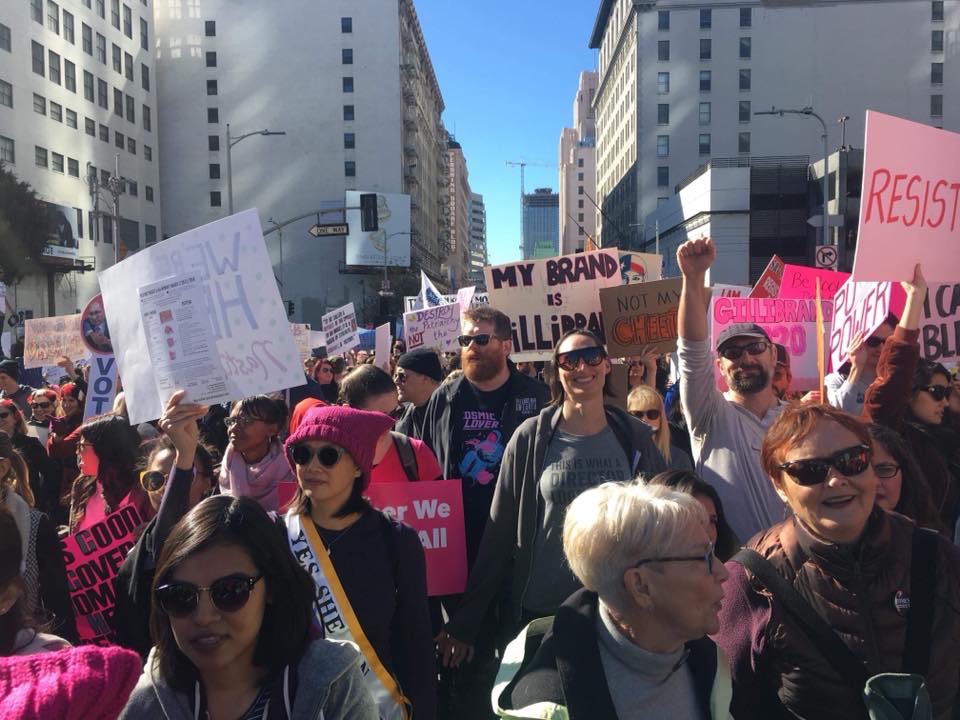
Men, boys, fathers, sons, brothers, we love you and value who you are and what you bring to the table. We’re simply demanding an equal partnership. We need to work together in this fight for the survival of our children and grandchildren. In your heart you know you need our help to manage this mess.
This is an opportunity to redefine what masculinity means. Many men are hurting and we all need a reset. The patriarchal system where masculinity is almost entirely defined by career, wealth, stoicism and power over others, is not working for men, either. These outdated and toxic stereotypes are forcing men and boys to repress their true nature in order to measure up and that causes anxiety and anger. Men should be allowed to be a whole person, to be who they truly are, while working hard toward their goals. We must teach our sons respect, tolerance and sustainability; to harness their masculine energy and not to measure their worth solely by their wealth and status, because those things alone do not lead to happiness. We need both good men and women to be stewards of the earth. Plenty of strong feminist men are among us: being a feminist goes beyond gender definitions, it’s about an ethos, a mindset, a set of values.
What we must do now
This is a call to action for all feminists, and a call for true commitment:
We commit to firing up our minds to a new vision of what the world can be, with women at the forefront and leading the charge, never giving up just because nobody like us has ever done it.
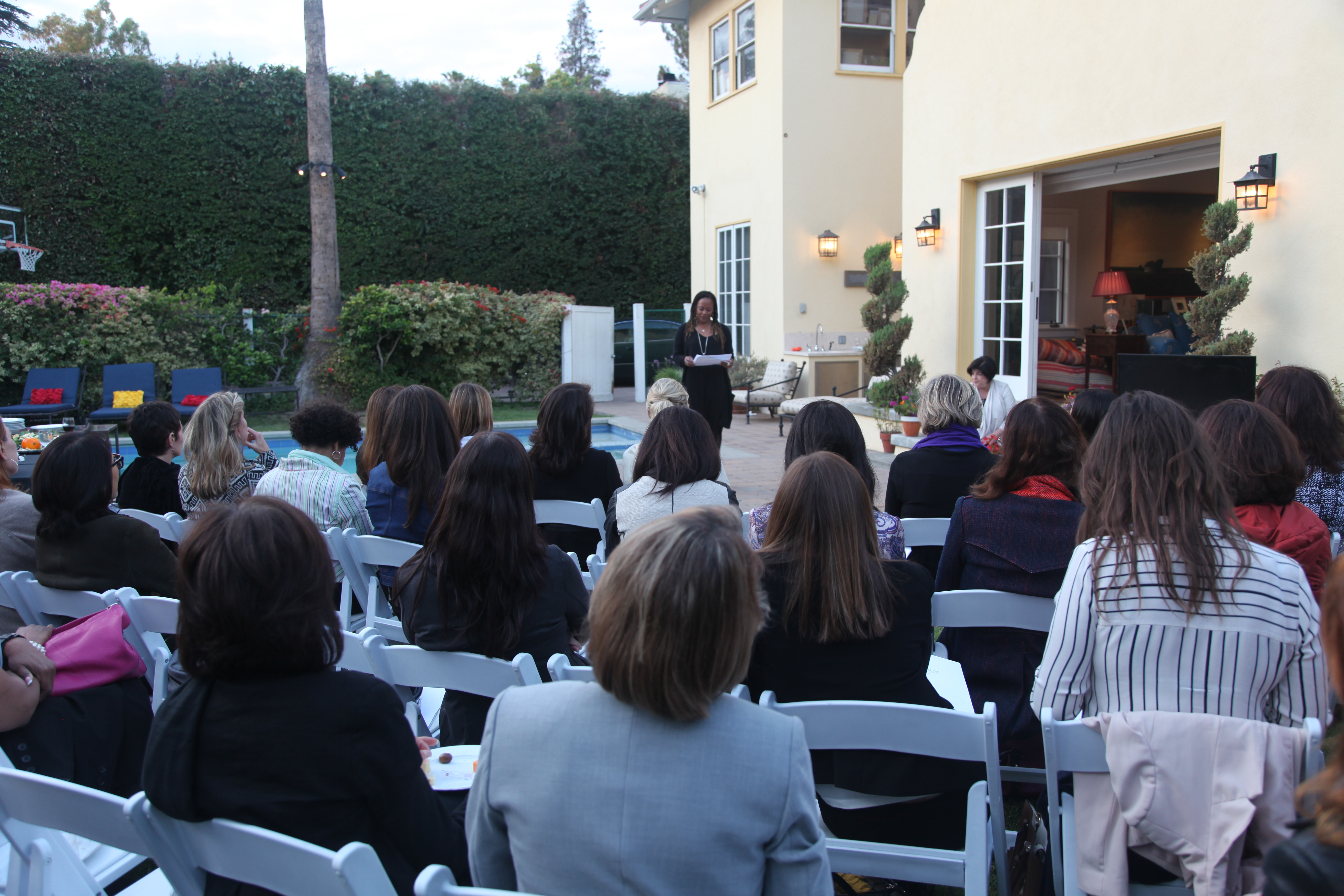
We commit to forging coalitions with other women, to banding together and gathering our strength in numbers. Cooperation is hard but it is the key to breaking through barriers and we know how to do it. It doesn’t change anything if only a few women rise and succeed. Lasting change is achieved by mass action. So, let’s join and form more groups – I have taken part in some great leadership/mentorship groups such as the Ellevate Network, the Step Up Women’s Network, We Are Enough, and others. The disparate groups need to come together to form power blocs so that we become a united force. We are all sisters! Why don’t we have a meeting of the minds and hold a Davos of women’s leadership to discuss how women can come together in the world, in countries, cities, in small towns, in neighborhoods?
We commit to lifting all women up, not just those at the top but also those at the bottom. Those who reach the top must commit to act in the interest of all women, including those most vulnerable, and do everything they can to address the “socioeconomic constraints that make freedom and empowerment impossible for the large majority of women,” as pointed out by the organizers of the International Women’s Strike U.S. in Feminism for the 99%. It’s not about a few women upholding the current system, it’s about all of us working to change it wholesale.
We commit to instilling new values of sustainability, letting go of the belief that there’s only one way to run the world, through brutal extraction of resources at the expense of whoever and whatever is in the way. How can we forge a system where responsibility, long term thinking, skill, depth of knowledge and strength of character is rewarded, rather than bluster, shallowness, and profit at any cost?
On a personal level, we each commit to pushing the envelope, doing whatever we can to the movement, fully exercising the power at our disposal—with our vote, with our energy, with our voice.
We commit to being open to improvement, to learn new skills, to stretch ourselves, to try new challenges, to learn to be comfortable with uncertainty and build up perseverance and inner strength.
We commit to working on our mental and emotional well being so that we can manage conflict and rise above pettiness, corruption, small-mindedness and the self-defeating beliefs that hold us back.
We commit to digging deep and cultivating our own maturity, wisdom, kindness and peace so as to make hard choices from a place of clarity, strength and compassion.
We commit to fully embracing our femininity. In the words of Chimamanda Ngozi Adichi: “I have chosen to no longer be apologetic for my femininity. And I want to be respected in all my femaleness.”
Women and girls of the world—Can we sacrifice, can we reimagine, can we activate, can we take action, can we rise, can we join hands and step up into power, together?
Calling all friends of Malalas, Gretas, and RBG’s out there.
Hands together, sisters. Our time is here. Don’t give up, keep persisting. We will get there, together!

